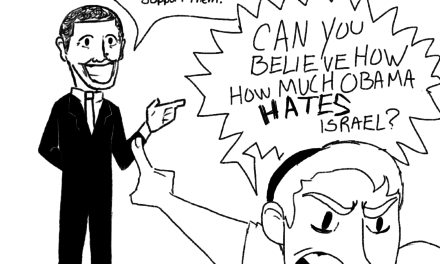To the Editor:
With the recent announcement of both cuts and a significant restructuring of many departments, many facets of the Emory community were quick to question such decisions, and are justified in doing so; however, it is apparent that the arguments for and against such changes are very diverse and complex. Thus, the necessary skepticism should be thoughtful, not arbitrary. Unfortunately, many of the criticisms so far don’t seem to be taking into account all the variables in the equation, and likewise aren’t aware of much of the hypocrisy present within such statements. While the decision to cut the departments may seem rash to many of the students, we likewise need to acknowledge that making an uninformed judgment of such a decision is even more rash.
As an ardent critic of many of Emory’s administrative policies and its overall cohesion as an institution, I do not intend to justify the decisions made regarding the cuts, nor do I wish to disqualify any arguments against such actions. I seek to reveal the true nature of what I believe to be the heart of many of Emory’s problems. I claim that Dr. Forman has become a scapegoat for a much deeper issue. Unfortunately, he is a scapegoat for both sides. By sending the letter to the students, he is in effect representing an administration of many more individuals and much more powerful than himself. Likewise, by featuring two pictures of Forman in the recent Wheel, countless references of his name, and even so far as some students (unaffiliated with the Wheel, I hope) creating a “satirical” Twitter account impersonating the man, he is made out to be the archetype of an negligent decision maker. Posting pictures of him and constantly referencing his name will only inhibit any progress to be made in coming to terms with the recent decisions.
While these cuts are perceived to be rash and arbitrary, Dr. Forman is not the sole individual responsible for them, and the changes were made with abundant forethought and analysis of the situation. Foreman did not laugh maniacally when writing the letter; he is aware of the loss the cuts will have on our community. The ignorance in using Dr. Foreman as a scapegoat for the decision is in fact more fundamental and extreme than any ignorance Dr. Foreman himself is responsible of for in making the decision.
Rather than blame our new Dean for his supposed oversights, we should deeply inquire into what various financial, administrative, and departmental interests were analyzed and how they were compared in making the decision at hand. My own experience at Emory has revealed a variety of inefficiencies in administrative policy and the communication necessary to improve upon such defects. The apparent lack of transparency is ubiquitous; this instance is by no means an exception.
I find that Emory, rather than being an integrated institution, is a conglomerate of disconnected entities with very little communication between students, professors, administrators, staff, and the greater community. This lack of communication only serves to enhance a variety of independent and often competing interests. Different departments are forced to fight for funds instead of attempting to collaborate with other departments to create a contiguous academic experience for its students.
Rather than defining ourselves by our differences, we need to understand the interdisciplinary nature of every subject from mathematics to the arts. We’re all people, and we’re all working to improve the world in some way or another. In order to help achieve this goal shared by the Emory community, our institution needs to encourage the exchange of knowledge and ideas on all levels. The pertinent question is whether these new changes will enhance or inhibit this process.
Perhaps further analysis of the interactions between the various components of the University will allow the community to work for its own best interests and address the true nature of the problems at hand.
Warrick Macmillan
Emory College
Class of 2013
The Emory Wheel was founded in 1919 and is currently the only independent, student-run newspaper of Emory University. The Wheel publishes weekly on Wednesdays during the academic year, except during University holidays and scheduled publication intermissions.
The Wheel is financially and editorially independent from the University. All of its content is generated by the Wheel’s more than 100 student staff members and contributing writers, and its printing costs are covered by profits from self-generated advertising sales.






You make some rational points about rushing to judgement about the cuts at a time when not all the facts are available, but your premise that the lack of communication in explaining these cuts results from overall disconnect is pretty flawed. Ultimately, the administration and board of directors are the only people who can explain the rationale for these cuts, and they have made a conscious decision to maintain secrecy about them and doubletalk their way through the shitstorm. You make it sound as if their communication problems are unintentional, like it’s something that can be improved on if the administration just tries a little harder and works out some “inefficiencies”. But that’s an illusion; there’s no way you can deny that Forman is rightly the focus of all this anger and deserves to be crucified over the lack of transparency and intentionally avoiding any sort of inclusive dialogue. If anything, that anger should be simultaneously directed at President Wagner, Ron “New Directions” Sauder and the rest of the administration. (Seriously, how amazing is it that Wagner has managed to isolate himself from the outrage directed at Forman? The only sympathy I have for Forman is that he’s the sole fall guy when Wagner should be thrown to the dogs right along with him).
The bottom line is that we shouldn’t have to “deeply inquire into what various financial, administrative, and departmental interests were analyzed and how they were compared in making the decision at hand.” That’s something the administration could and should have told us from the start.